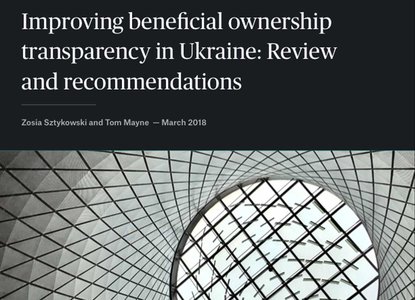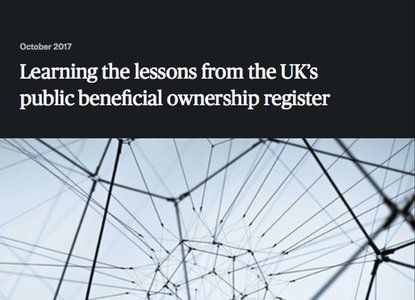Consultation: Open Ownership Principles

Open Ownership (OO) is running a consultation on the Open Ownership Principles (OO Principles). The OO Principles define what effective beneficial ownership (BO) looks like in practice. The OO Principles focus on the technical characteristics of effective disclosure regimes, rather than on the external political, social, economic, and cultural factors that are known to influence implementation and impact.
Your submissions will help us assess:
- whether the scope and detail of the OO Principles is sufficient to act as an effective framework for a holistic and impactful implementation of beneficial ownership transparency (BOT) regimes;
- the utility of the OO Principles in various sectors working on BOT, and new use cases;
- how the OO Principles can be leveraged to push for better BO data that is useful to a broad range of potential data users;
- the risks and opportunities of the OO Principles as a global standard on BOT, and how it fits with established global norms and standards.
This open consultation will be supplemented by more detailed written and verbal feedback from a smaller group of expert stakeholders.
This consultation is now closed.
For a guide to the consultation, including a list of all the questions click here.
Background
Governments are pursuing BOT for a range of policy aims, including tackling corruption, promoting economic growth, and ensuring effective taxation. To achieve these goals, governments must implement comprehensive transparent company ownership that generates actionable and usable data for a range of potential users, including: law enforcement and journalists during investigations; civil society monitoring; and public and private sector due diligence.
In April 2020, OO launched the original Principles for Effective Beneficial Ownership Disclosure with the aim of setting the gold standard for transparent company ownership. These were 12 principles with over 100 detailed indicators. Over the course of the following nine months, OO worked with partners at the national and international level to test these principles, applying them in our work to support BOT in countries including Armenia, Mexico, Ghana, Kenya, and Nigeria.
In December 2020, OO published the refined and updated version: the OO Principles. These provide a framework for implementing comprehensive transparent company ownership that generates actionable and usable data. Effective disclosure needs high quality, reliable data to maximise usability and minimise loopholes.
The OO Principles focus on the technical characteristics of effective disclosure regimes rather than the external political, social, economic, and cultural factors that are known to influence implementation and impact. The OO Principles are the product of OO’s work with almost 40 countries to advance BOT and break down the complexity in implementing it.
Implementing the OO Principles goes beyond the Financial Action Task Force (FATF) recommendations 24 and 25 relating to the collection of BO data by governments to counter money laundering and terrorism financing.
By using the OO Principles, countries can ensure they meet international commitments, including the Extractive Industries Transparency Initiative (EITI) requirement 2.5 on BOT and the EU 5th Anti-Money Laundering Directive.
OO sees the OO Principles as an important tool with a number of potential uses. So far, the OO Principles have been used to support implementing comprehensive BO disclosure by describing the key technical features of a disclosure regime to generate actionable and usable data. The OO Principles have also been used as an evaluative tool to assess the current state of BOT in particular countries (see the UK Assessment in Resources). OO is also interested in exploring other possible use cases.
This consultation is now closed.
Related articles and publications
Publication type
Event
News article
Sections
Implementation,
Research

